Collagen and healthy ageing: what’s the connection?
Beef Salad with Peaches
Muscle Care
Muscle Health support
Muscle health is something we require in order to support our lifestyle. Whether we are sitting at a desk all day, standing for long periods or working a physically demanding job, we often need nutrients like magnesium, to support tired, stressed muscles. Muscle health support is an important thing when we are physically active, supporting our muscles from either exercise or lifting heavy objects incorrectly. Skeletal muscles require regular nutritional support to remain healthy and fully functional and we need to assist the muscles naturally, to support recovery and optimal muscle mass.
Muscle Health Support Nutrients
- Coenzyme Q10 is a vitamin antioxidant that helps to support energy production in muscles.
- Turmeric (Curcuma longa) the active constituent ‘curcumin,’ offers antioxidant benefit for muscle health and function.
- Omega 3 offers essential fats that help support muscle recovery, support and comfort.
- Amino acids are essential amino acids: leucine, isoleucine and valine can help to build muscle, support energy in the muscle tissue and support muscle recovery from physical exercise. Amino acids such as carnitine and taurine may also benefit a healthy heart and skeletal muscle
- Vitamin D is a necessary fat-soluble vitamin that works as a cofactor with magnesium to support general muscle health and function.
- Magnesium is a specific, ‘relaxing’ mineral that helps support the contractibility of muscle tissue. This mineral is specific to supporting muscles after exercise and supporting tired, tight muscles due to stress.
Muscle Health Support Tips
- To keep your muscles healthy and strong, we need to keep the following tips in mind. A sufficient protein diet – necessary building blocks for muscle support and growth.
- Exercise supports the natural circulation and delivery of nutrients to muscle tissue, supporting tired, tense muscles.
- Quality supplements – to provide the necessary nutrients to support tired, stressed muscles.
- Resistance training – an active Lifestyle helps to support muscle strength and maintain the health of muscle tissue.
- Recovery time – this is a vital process in supporting long-term muscle health. Key nutrients combined with rest can ensure you have strong, healthy muscles.
FAQ's
Active muscle recovery supports blood circulation that ensures a healthy delivery of nutrients to the muscle tissue and assistance with the removal of waste products from muscle breakdown that occur as a result of exercise. Examples of active recovery exercises include walking, stretching, and yoga. Muscle fibres rebuild and the recovery process allows these fibres to be stronger than they were before.
Persistent weakness in muscles creates an inability to perform daily tasks, as skeletal muscles are the only voluntary muscle tissue in the human body and control every action that a person consciously performs. When your muscle tissue is strong and healthy, you are able to perform usual daily activities, with the capability of gentle movement or exercise with ease.
Exercising, getting enough rest, and eating a balanced diet will help to keep your muscles healthy for life. Keeping your muscles healthy will help you to be able to walk, run, jump, lift things, play sports, and do all the other things you love to do.
Supplements to help muscles recover faster, include Omega 3 fish oils, which offer essential nutrients to nourish, lubricate and support muscle function and comfort. Hyaluronic acid and chondroitin help moisturise muscle tissue for mobility and flexibility. Whey protein to help build muscle and retain optimal muscle mass. Magnesium to support muscle contractibility and relaxation. Alpha Lipoic Acid and Acetyl-L-Carnitine offer an antioxidant benefit for muscles, as well as energy production in muscle tissue. Electrolyte nutrients; Magnesium, Potassium, Sodium and Chloride are excellent for muscles, as they can assist with muscle contraction and relaxation.




